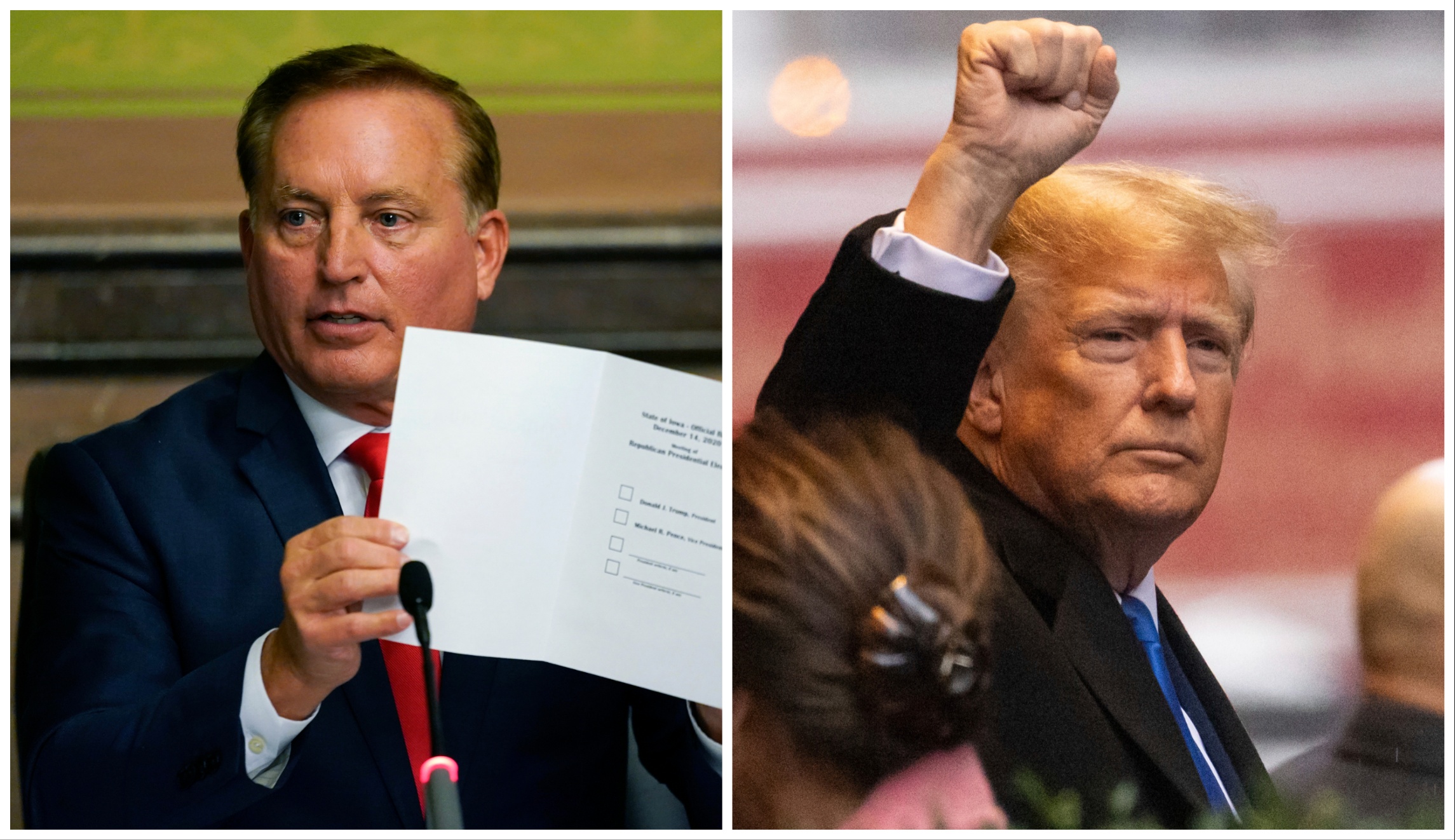

A bill filed by Iowa Republican Secretary of State Paul Pate would prevent any legal challenges attempting to remove former President Donald Trump from the 2024 ballot under the 14th Amendment, handing the former president a victory as he faces those efforts in other states.
Trump won the Iowa caucuses last week and the New Hampshire primary on Tuesday. He has faced several lawsuits and challenges to remove him from the ballot under a section of the 14th Amendment disqualifying those who “engaged in insurrection” from holding public office. The decisions to remove him from the ballot in Colorado and Maine are on pause as the Supreme Court reviews the former’s case.
Other states, such as Michigan, Massachusetts, and Minnesota, as well as Florida and New Hampshire, have rejected attempts or ruled against lawsuits seeking to kick him off the ballot. Some states are currently reviewing challenges.
Current Iowa law allows Iowans to challenge both primary and general election candidates’ eligibility to appear on the ballot on a variety of grounds.
Pate’s bill, which appeared on the Iowa legislature’s website on Jan. 18, would limit the grounds for challenges to just a presidential candidate in the general election, according to the Des Moines Register. The bill has not been assigned a number or to a committee.
In Iowa, political parties must produce a certificate with the names of the presidential and vice presidential candidates to Pate’s office. The new bill would restrict challenges to presidential candidates and would apply only to those whose certificates meet the legal requirements.
Pate spokeswoman Ashley Hunt said that the standing law presumes that the paperwork candidates file to run for office is valid and limits what issues are eligible for objection.
“This simply extends that same standard to all candidates explicitly,” Hunt said, adding that the bill would clarify the objections process.
“To the best of our knowledge, in 2015 Mr. Trump met the constitutional requirements to be president and continues to do so,” Hunt continued. “Mr. Trump has not been convicted of anything that disqualifies him to be president. This bill simply helps clarify the objection process for Iowa.”
The bill would also restrict challenges to include just the candidate’s age, residency, citizenship, and whether their nominating papers meet the legal requirements — effectively removing the felony ban as a grounds for disqualification for candidates running for president or Congress. Trump currently faces 91 felony charges across four legal cases at the federal and state levels.
CLICK HERE TO READ MORE FROM THE WASHINGTON EXAMINER
Hunt said the Constitution lays out requirements for members of Congress and the president, so states do not have the authority to place additional requirements for running for office.
“This update ensures affidavits comply with those requirements,” Hunt said.




